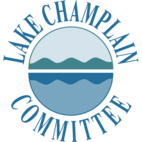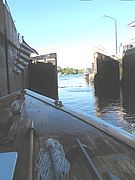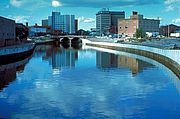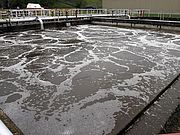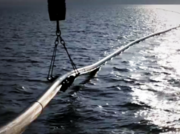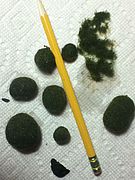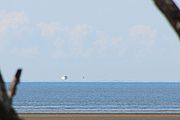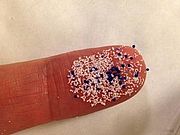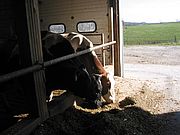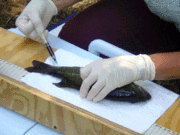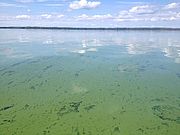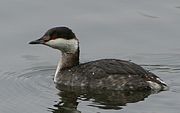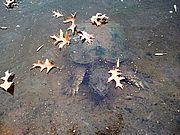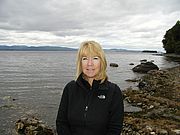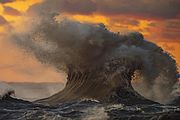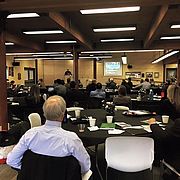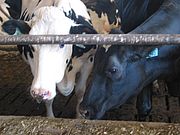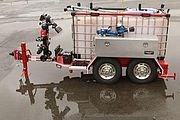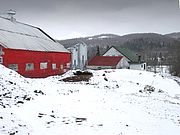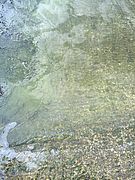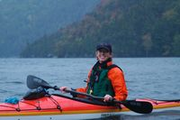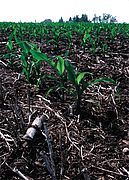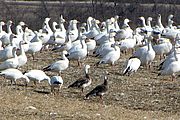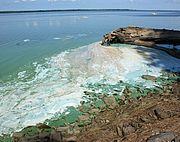Competing opinions from too many lawyers and an excess of backside covering from political appointees have prevented any forward movement to address the risk of invasive species entering Lake Champlain through the Champlain Canal. Read...
News from Selected Category
High lead levels in the drinking water in Flint, Michigan have led to a federal state of emergency, mobilization of the National Guard, the resignation of the state’s highest environmental officer and public apologies from the governor. Read...
The problems associated with aging wastewater infrastructure are daunting and many of our neglected systems need maintenance and repairs. Read...
In 2015 the Vermont’s Public Service Board approved a $1.2 billion utility transmission project from Canada to Ludlow. TDI New England, the project proponent, plans to build a 1,000-megawatt direct transmission line that will feed the southern New England power grid. Read...
In late November a package arrived in the mail. It contained some round green balls that a friend had found on the shore of Lake Champlain in Panton, VT. , and she wondered what they might be. Read...
Very cold air coming in over a relatively warm lake can create visions of floating islands in the sky. These are inferior mirages. Read...
In 2015 we welcomed a new staff person, Board member and Advisory Council member to LCC. In case you haven't met them yet we are pleased to introduce them here. . .Read...
Béla Fleck and Abigail Washburn Concert coming to the Lake Champlain watershed!
Read...Lake Champlain research opportunities for students, LCC on TV, loon rescues, eerie Erie, record heat and more!Read...
On December 28 President Barack Obama signed the Microbead-Free Waters Act of 2015 into law. The measure will phase out the use of plastic microbeads in consumer products over the next several years. Read...
LCC joined a coalition of environmental groups to submit comments on draft Required Agricultural Practices (RAPs) proposed by the Vermont Agency of Agriculture and Farm Markets (AAFM). Read...
Eighty five percent of male smallmouth bass and 27 percent of male largemouth bass tested in waters in or near 19 National Wildlife Refuges in the Northeast U.S. were intersex, according to a new study by U.S. Geological Survey and U.S. Fish and Wildlife Service researchers published in Ecotoxicology and Environmental Safety. Read...
A crew of dedicated LCC volunteers fanned out along the shores of Lake Champlain each week to track the severity of blue-green algae blooms this past summer. To prepare volunteers, LCC provided 23 training sessions and for over 300 people in the late spring. Read...
Scanning the open waters of Lake Champlain with a pair of binoculars near Button Bay in Ferrisburgh, a thin, long-necked, duck-like silhouette appears far from shore, rocking on the waves. Read...
Winter drives many creatures into hibernation, or at least states of severely reduced metabolic activity. Bears might curl up in a protected cave; chipmunks seek fur-lined holes in the ground; bats congregated in caves; but turtles face a particular challenge. How can a lung-breathing animal spend an entire winter underwater and still get enough oxygen to survive? Read...
More than a hundred volunteers trained by LCC filed weekly water quality reports during the summer. Their data provided over 75% of the information on the blue-green algae tracking map housed at the Vermont Department of Health.
Well you would have if you had "liked" LCC's Facebook page. 'Like' LCC's Facebook page for engaging content, the latest lake news, and beautiful lake photos. Here's how: Read...
A manure energy plan for St. Albans, climate change and pollution, pollution trading and more! Read...
On October 23, the Vermont Law School hosted a symposium titled "TMDLs 2.0: Charting a Course for Clean Water." During the symposium, keynote speakers and panelists discussed cutting-edge litigation, key court decisions, and the impact of Total Maximum Daily Load (TMDL) regulations on water quality. Read...
Researchers at the University of Vermont have put together a series of integrated models to better understand the impacts of climate change on Lake Champlain and the Champlain Basin. Read...
The Vermont Agency of Agriculture and Farm Markets (VAAFM) has released draft required agricultural practices (RAPs). The draft is driven by water quality legislation passed last spring in response to advocacy from LCC and others that agricultural controls needed to be strengthened. Read...
In the first weekend of November there were two oil train derailments in Wisconsin. With these two accidents, at least 26 oil trains have been involved in major fires, derailments or spills during the last decade. Read...
The Vermont Agency of Agriculture held a hearing on November 12 in St. Albans on a proposal that would require best management practices (BMPs) on farms in the Missisquoi Bay Basin. BMPs are actions that go beyond the Required Agricultural Practices that are currently in draft form (see earlier article). Read...
In August, representatives from the Center for Disease Control (CDC) visited LCC to interview Staff Scientist Mike Winslow on LCC’s role in implementing public health tracking of blue-green algae blooms on Lake Champlain. Read...
Foliage season, bird migrations and the serenity of a near empty lake all beckon the fall paddler. It can be a wonderful time to be on the water – if you’re well prepared. Read...
Agriculture is a significant source of phosphorus loading to Lake Champlain. Reductions of between 20 and 83% of current loads in targeted watersheds are needed to meet water quality standards. Improving soil health can reduce erosion and phosphorus loss from fields. Read...
“If we can live without goose music, we may as well do away with stars, or sunsets, Iliads. But the point is that we would be fools to do away with any of them.” – Aldo LeopoldRead...
Boost LCC programs with a year-end donation, gift a membership, buy the Lake Book, or keep the lake in view with LCC note cards!
Read...The summer of 2015 saw extensive disgusting blue-green algae blooms in northeastern bays of Lake Champlain, but much has occurred on the recent policy front to lend hope about the future of Lake Champlain. Vermont passed a new clean water bill whose implementation should improve many practices around the state that affect water quality. Read...
